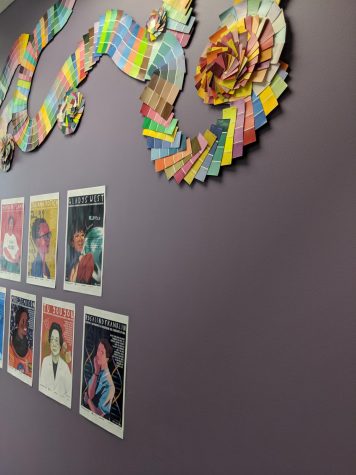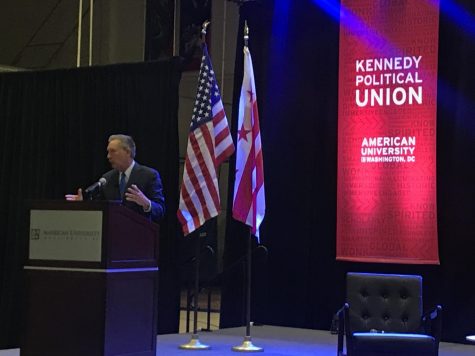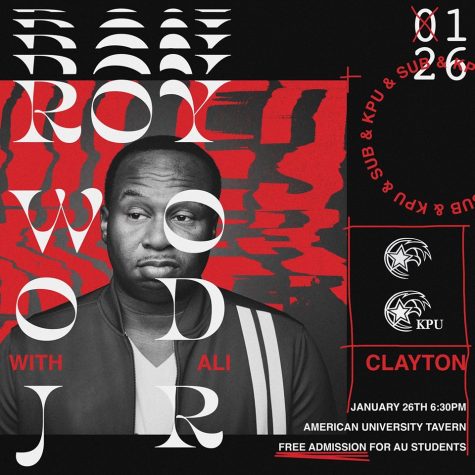Rallying to Support Police: Blue Lives Matter
“I Support My Man in Blue.” “My Husband Works Hard for You.” “Blue Lives Matter.”
These are only some of the phrases that adorned handmade signs at the Jan. 17 “Sea of Blue” march, a recent pro-police march in Washington, DC. With police brutality cases and loud anti-police brutality protests currently in the public eye, many people are standing up for their local officers.
“People are tired of the negativity towards police officers,” said Kelly Wince, a co-organizer of the march whose husband is a local police officer. “People are tired of the police officers not getting the credit that’s due to them. And I think that it is catching on.”
Hundreds of blue-clad, poster-bearing community members came together to thank police for their service and to show their support as they marched from the National Law Enforcement Memorial to the Capitol Building.
The National Law Enforcement Officers Memorial hosts a “Police Week” every year, but it usually focuses on commemorating deceased police heroes. According to organizers, that was not enough.
“Something has needed to be done for a long time,” said Bobbie Padgett, a co-organizer of the march. “We don’t do anything for the officers that are here and living.”
“Every time they walk out that door, they lay their lives on the line,” Wince said. “You don’t know if they’re coming home or not.”
The campaigners said that while officers need to be thanked for their service and their sacrifices, they also need to be seen on a more personal level.
“Police officers need to be humanized,” Padgett said. ”They do things just as everybody else but their job is also to protect and enforce.” Even the smallest portrayals in the media of officers being “normal” help. Padgett and Wince cite the recent viral YouTube video of a police officer singing along to Taylor Swift’s “Shake it Off” as an example.
Pro-police rallies have taken place all around the country, from New York to California. On Jan. 24, the Arizona-based organization, Rally for Law Enforcement, held a nationwide march called “Link in the Chain.” A total of 16 cities participated, indicating that the pro-police cause may be gaining momentum.
However, American University criminology professor Brad Bartholomew says the impact of a rally like the one in DC can vary. Support for police can depend on various factors in a community, such as race, ethnicity and socioeconomic status.
“Every time they walk out that door, they lay their lives on the line. You don’t know if they are coming home or not.”
However, Bartholomew also says that subsequent rallies may be more powerful, now that the movement is beginning to catch the public’s attention.
“I’m skeptical that it could spark this huge groundswell of support for the police, in areas especially that don’t normally have it,” he said.
“It’s always easier for another protest to happen after the first one, particularly if the first one meets some basic level of success,” he said. One thing is for certain: pro-police supporters want to be heard.
“We need to do something with our nation,” Wince said. “We need to bring our nation back together again.”






